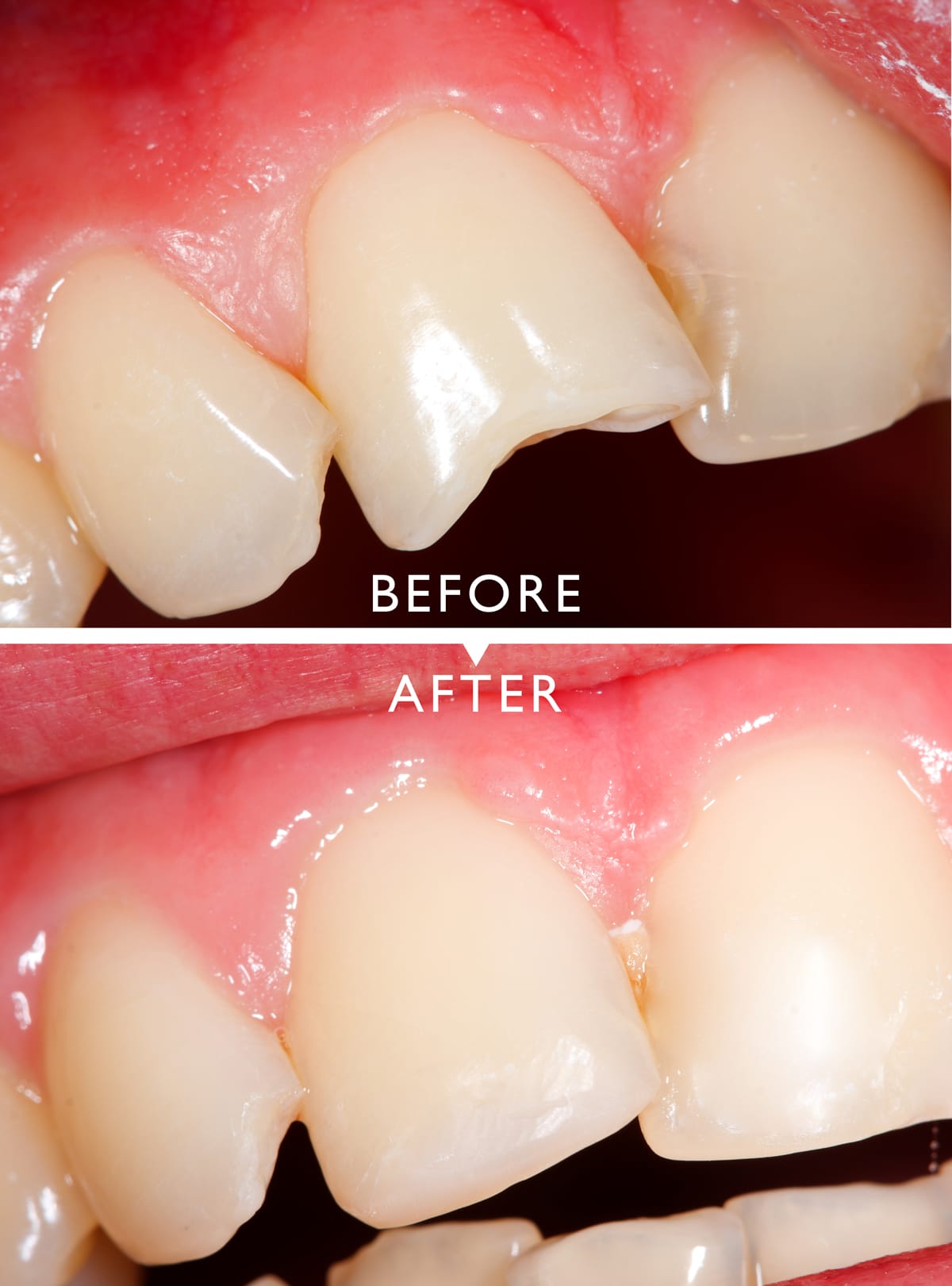Cracked Teeth: Endodontic Solutions and Care
Did you know that cracked teeth are one of the leading causes of tooth loss among adults? It’s a startling fact that highlights the importance of understanding endodontic solutions and care for cracked teeth.
From the various types of cracks to the symptoms and diagnosis, there is much to explore in this field. In this discussion, we will delve into the different endodontic treatment options, restorative solutions, and post-treatment care for cracked teeth.
But that’s not all we will also uncover effective ways to prevent cracked teeth, ensuring the longevity of your dental health.
So, let’s embark on this journey together and discover how to safeguard your smile.
Types of Cracked Teeth
There are several types of cracked teeth that can occur due to various causes.
One common type is called a craze line, which is a small crack that only affects the outer layer of your tooth, the enamel. Craze lines are usually harmless and don’t require treatment, but they can sometimes cause tooth sensitivity.
Another type of crack is a fractured cusp, which occurs when a piece of the tooth’s chewing surface breaks off. This can happen if you bite down on something hard or if you have a large filling in your tooth. Fractured cusps can usually be repaired with a dental crown.
A cracked tooth is a more serious condition where a crack extends from the chewing surface of the tooth towards the root. This type of crack can cause pain when chewing and can also lead to infection.
A root fracture is the most severe type of crack, and it occurs when the crack extends from the root of the tooth towards the chewing surface. Root fractures often require extraction of the tooth.
Symptoms and Diagnosis
Are you experiencing pain or sensitivity in your tooth? These are common symptoms that may indicate a cracked tooth.
To diagnose a cracked tooth, your dentist will perform a thorough examination, including taking X-rays. By identifying the symptoms and conducting a proper diagnosis, your dentist can recommend the appropriate endodontic solutions and care for your cracked tooth.
Pain and Sensitivity
If you’re experiencing pain or sensitivity in your teeth, it’s important to seek professional dental care for a proper diagnosis. Here are some symptoms to look out for:
1. Sharp, shooting pain: Cracked teeth can cause sudden, intense pain that comes and goes, especially when biting down or releasing pressure.
2. Sensitivity to hot and cold: Cracks in the enamel can expose the sensitive inner layers of the tooth, leading to discomfort when consuming hot or cold foods and drinks.
3. Pain when chewing: If you feel pain while chewing, it could be a sign of a cracked tooth that’s putting pressure on the nerves.
4. Swelling and tenderness: In some cases, a cracked tooth can cause inflammation and discomfort in the surrounding gums.
Cracked Tooth Detection
To detect a cracked tooth and determine the severity, a dental professional will evaluate your symptoms and conduct a thorough examination. The symptoms of a cracked tooth can vary depending on the extent of the crack. You may experience pain or sensitivity when biting or chewing, especially when releasing the bite. You may also notice that your tooth is sensitive to hot or cold temperatures. In some cases, a cracked tooth may cause intermittent pain that’s difficult to pinpoint.
During the examination, the dentist will use a dental instrument called an explorer to gently tap on the tooth and determine if it produces a sharp or dull pain. X-rays may also be taken to check for any signs of a crack or damage to the tooth root. Proper diagnosis is crucial in order to determine the appropriate treatment for your cracked tooth.
X-Ray and Examination
During the examination, the dental professional will carefully assess your symptoms and conduct a thorough examination to diagnose the severity of the cracked tooth. Here’s what you can expect during this process:
1. Visual inspection: The dentist will visually examine your teeth and gums to look for any visible signs of a cracked tooth, such as a visible fracture line or a missing piece of tooth.
2. X-rays: To get a more detailed view, the dentist may take X-rays of your teeth. These can help identify cracks that aren’t visible to the naked eye, such as cracks below the gum line or inside the tooth.
3. Tooth vitality testing: The dentist may perform tests to check the sensitivity and responsiveness of the tooth’s nerves. This helps determine if the cracked tooth is causing any damage to the pulp or nerve tissue.
4. Biting and pressure tests: You may be asked to bite down on different materials or apply pressure to specific areas of your tooth to evaluate the pain and discomfort caused by the crack.
Importance of Endodontic Treatment
Why is endodontic treatment essential for maintaining the health of your teeth?
The answer lies in the fact that endodontic treatment focuses on treating the innermost part of your tooth, known as the pulp. When the pulp becomes infected or damaged, it can lead to severe pain and even the loss of your tooth if left untreated.
Endodontic treatment, also known as a root canal, involves removing the infected pulp, cleaning the inside of the tooth, and sealing it to prevent further infection. By undergoing this treatment, you not only relieve pain but also save your natural tooth, which is always the best option for maintaining oral health.
It’s important to remember that even though modern dentistry offers various tooth replacement options, none of them can truly match the strength, functionality, and aesthetics of your natural teeth. Therefore, choosing endodontic treatment is crucial for preserving the health and integrity of your smile.
Endodontic Treatment Options
Now let’s talk about your options for endodontic treatment.
There are three main points to consider: repairing cracked teeth, root canal therapy, and dental crown placement.
Each of these options is designed to address different dental issues and provide effective solutions for preserving your teeth and relieving any pain or discomfort you may be experiencing.
Let’s explore each option in more detail.
Repairing Cracked Teeth
Consider the various endodontic treatment options available for repairing cracked teeth. When it comes to treating cracked teeth, there are several approaches that can be taken. Here are four common endodontic solutions to help restore your cracked tooth:
1. Dental bonding: This involves applying a tooth-colored resin to the cracked area, which is then hardened using a special light. Dental bonding can help to restore the appearance and function of a cracked tooth.
2. Dental crowns: A dental crown is a cap that’s placed over the cracked tooth to protect it from further damage. Crowns can be made from various materials, including porcelain, metal, or a combination of both.
3. Root canal treatment: If the crack extends into the pulp of the tooth, a root canal may be necessary. During this procedure, the infected pulp is removed, and the tooth is sealed to prevent further damage.
4. Dental implants: In cases where the cracked tooth can’t be saved, a dental implant may be recommended. This involves replacing the cracked tooth with an artificial tooth that’s anchored into the jawbone.
Root Canal Therapy
One commonly used endodontic treatment option for repairing cracked teeth is root canal therapy. When a tooth is cracked, the pulp inside may become inflamed or infected, causing pain and discomfort. Root canal therapy involves removing the damaged pulp and cleaning the inside of the tooth. This procedure helps to eliminate the infection and prevent the spread of bacteria.
It’s performed under local anesthesia to ensure your comfort. After the pulp is removed, the tooth is filled with a rubber-like material called gutta-percha, and then sealed with a dental filling or crown. Root canal therapy is a highly successful procedure that can save your cracked tooth from extraction and restore its function.
If you experience any symptoms of a cracked tooth, such as pain while chewing or sensitivity to hot and cold, consult your dentist to determine if root canal therapy is the right treatment option for you.
Dental Crown Placement
To restore the function and strength of a tooth after root canal therapy, a dental crown is often placed. A dental crown is a custom-made cap that covers the entire tooth, providing protection and support. Here are four things you need to know about dental crown placement:
1. Preparation: Before placing the crown, your dentist will remove any remaining decay and shape the tooth to ensure a proper fit for the crown.
2. Temporary crown: While your permanent crown is being made, a temporary crown will be placed to protect the tooth.
3. Impression: An impression of your prepared tooth will be taken to create a custom crown that matches your natural teeth.
4. Placement: Once your permanent crown is ready, your dentist will remove the temporary crown and bond the permanent crown in place using dental cement.
Dental crown placement is an effective way to restore the appearance and functionality of a tooth after root canal therapy.
Restorative Solutions for Cracked Teeth
Restorative solutions for cracked teeth can effectively repair and strengthen damaged tooth structures. When it comes to treating cracked teeth, there are several options available to restore functionality and aesthetics.
One common solution is dental bonding, where a tooth-colored resin is applied to the cracked tooth and then hardened with a special light. This helps to bond the resin to the tooth and provide added strength. Dental bonding is a quick and cost-effective option for minor cracks.
For more severe cracks, dental crowns may be recommended. A dental crown is a custom-made cap that covers the entire tooth to protect it from further damage. Crowns are made from materials like porcelain or metal, and they can restore the tooth’s appearance and function.
Another option for cracked teeth is a dental veneer. Veneers are thin, tooth-colored shells that are bonded to the front surface of the tooth. They can improve the tooth’s appearance and provide some added strength.
In some cases, a root canal treatment may be necessary to save a cracked tooth. This involves removing the damaged pulp and nerve tissue from the tooth, then sealing it with a filling or crown. Root canals can help alleviate pain and prevent further damage to the tooth.
It’s important to consult with a dentist to determine the best restorative solution for your cracked tooth. They’ll assess the severity of the crack and recommend the most appropriate treatment option. Remember, seeking timely professional care is crucial to prevent further complications and maintain oral health.
Post-Treatment Care and Maintenance
After receiving restorative treatment for a cracked tooth, it’s important to follow proper post-treatment care and maintenance to ensure optimal healing and long-term success. Here are four essential steps to take in order to promote healing and maintain the health of your treated tooth:
1. Follow all instructions from your dentist: Your dentist will provide specific instructions tailored to your treatment. It’s crucial to follow these instructions carefully to ensure proper healing. This may include taking prescribed medications, avoiding certain foods or habits, and maintaining good oral hygiene.
2. Practice good oral hygiene: Brush your teeth twice a day with a soft-bristled toothbrush and fluoride toothpaste. Floss daily to remove plaque and food particles from between your teeth and around the treated tooth. Consider using an antimicrobial mouthwash to further reduce bacteria and aid in healing.
3. Avoid biting or chewing on hard objects: To protect your treated tooth, avoid biting or chewing on hard objects such as ice, pens, or hard candies. Additionally, avoid using your treated tooth to open packages or bottles.
4. Schedule regular dental check-ups: Regular dental check-ups are essential for monitoring the healing process and detecting any potential issues early on. Your dentist will assess the health of your treated tooth and ensure that it continues to function properly within your bite.
Preventing Cracked Teeth
Taking preventive measures is essential to avoid cracked teeth and maintain your oral health. By implementing a few simple habits, you can significantly reduce the risk of experiencing a cracked tooth.
First and foremost, be mindful of what you chew on. Avoid biting hard objects such as ice, popcorn kernels, and pens, as they can exert excessive pressure on your teeth and potentially cause cracks.
Additionally, protect your teeth during physical activities by wearing a mouthguard. Whether you’re playing contact sports or participating in recreational activities, a mouthguard acts as a cushion, absorbing the impact and minimizing the chance of a cracked tooth.
Regular dental check-ups are also crucial in preventing cracked teeth. Your dentist can identify any signs of decay or weakened enamel, which can ultimately lead to fractures. They may recommend dental treatments such as fillings or crowns to strengthen your teeth and prevent further damage.
Finally, practicing good oral hygiene is key. Brush your teeth twice a day, floss daily, and use fluoride toothpaste to keep your teeth strong and healthy.
Frequently Asked Questions
Can a Cracked Tooth Heal on Its Own Without Any Treatment?
No, a cracked tooth can’t heal on its own without any treatment. Cracks in teeth don’t have the ability to repair themselves like other parts of the body.
Without proper treatment, such as a dental crown or root canal, a cracked tooth can worsen and lead to more serious issues, including infection or tooth loss.
It’s important to seek professional dental care to address a cracked tooth and prevent further complications.
Are All Cracked Teeth Painful?
Not all cracked teeth are painful. Sometimes, a cracked tooth may not cause any discomfort or pain. However, it’s important to remember that even if a cracked tooth doesn’t hurt, it still requires attention and treatment from a dentist.
Cracked teeth can worsen over time and may eventually lead to more severe issues if left untreated. It’s always best to consult with a dental professional to determine the best course of action for your specific situation.
Can a Cracked Tooth Be Fixed With a Simple Filling?
No, a cracked tooth can’t be fixed with a simple filling. Cracks in the tooth can extend deep into the root, causing pain and discomfort. In order to properly treat a cracked tooth, a more advanced dental procedure, such as a root canal or crown, may be necessary.
These treatments can help to alleviate pain and restore the tooth’s function. It’s important to consult with a dentist to determine the best course of action for your specific situation.
Is It Possible to Prevent Cracked Teeth by Avoiding Certain Foods or Habits?
Avoiding certain foods and habits can help prevent cracked teeth. Chewing on hard objects like ice or opening packages with your teeth can put unnecessary stress on your teeth and increase the risk of cracks. Similarly, biting into hard foods like nuts or bones can also cause damage. It’s best to steer clear of these habits and opt for healthier alternatives.
Additionally, practicing good oral hygiene and visiting your dentist regularly can also help prevent cracked teeth.
Are There Any Alternative Treatments to Endodontic Treatment for a Cracked Tooth?
Yes, there are alternative treatments for a cracked tooth besides endodontic treatment. Depending on the severity of the crack, your dentist may recommend options such as dental bonding, a crown, or even tooth extraction in some cases.
These alternative treatments aim to restore the functionality and appearance of the tooth, providing a viable solution for cracked teeth.

It’s important to consult with your dentist to determine the best course of action for your specific situation.
Conclusion
In conclusion, cracked teeth can cause discomfort and lead to further complications if left untreated. It’s important to seek endodontic treatment to alleviate symptoms and preserve the tooth.
With various treatment options and restorative solutions available, cracked teeth can be effectively treated and restored to their optimal function.
Additionally, practicing good oral hygiene and taking preventive measures can help minimize the risk of developing cracked teeth in the future.
Was this helpful?

Welcome to my website! I am Levi Halpern, a dedicated and passionate professional Cosmetic Dentist with extensive experience in Orthodontic Innovations, Periodontal Care, and Pediatric Dental Care. I am thrilled to have the opportunity to share my knowledge and expertise with you.
